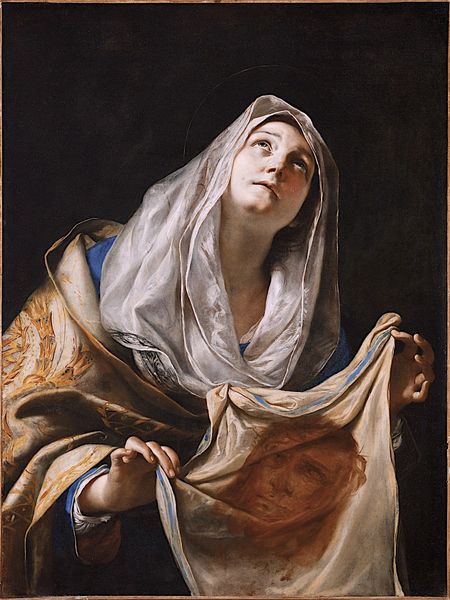
Polyptych of the Resurrection Virgin Annunciate 1522
0:00
0:00
titian
Santi Nazaro e Celso, Brescia, Italy
painting, oil-paint
#
portrait
#
venetian-painting
#
allegory
#
portrait
#
painting
#
oil-paint
#
christianity
#
history-painting
#
italian-renaissance
#
portrait art
#
virgin-mary
Copyright: Public domain
Editor: Here we have Titian's "Polyptych of the Resurrection Virgin Annunciate," painted in oil around 1522. Looking at this detail of the Virgin Mary, I'm immediately struck by the quiet sorrow in her face, a heavy sort of beauty. How would you describe the emotional weight Titian creates here? Curator: "Quiet sorrow" – I love how you put that. To me, it’s not just sorrow, but the precise moment between understanding and acceptance. It's like watching a sunrise bleed into the sky, understanding that something extraordinary, miraculous, is unfolding. Do you feel that subtle sense of hope, too, struggling through the shadows? Editor: I see the shadows, definitely, but hadn't focused on hope. More like resignation, maybe? It's powerful. Curator: Resignation is interesting... Think of Titian’s Venice. Political turmoil, the ever-present threat of plague. Maybe resignation *is* hope's quieter cousin in such times. Notice how the light delicately brushes her face. Is it divine intervention, or just really amazing skill with oil paints playing tricks on us? I always wonder... Editor: A little of both, perhaps? It is striking how much depth he gets with relatively few colors. So simple and yet so emotive. Curator: Exactly. He reminds us that complexity doesn't always need a thousand shades; sometimes, it hides in the nuances, in the little shifts of light and dark. And in a woman's expression caught between worlds. I come away feeling humbled, and perhaps just a bit more human. How about you? Editor: Definitely humbled! And I'll be thinking more about resignation as a form of hope. Thanks for that.
Comments
No comments
Be the first to comment and join the conversation on the ultimate creative platform.













